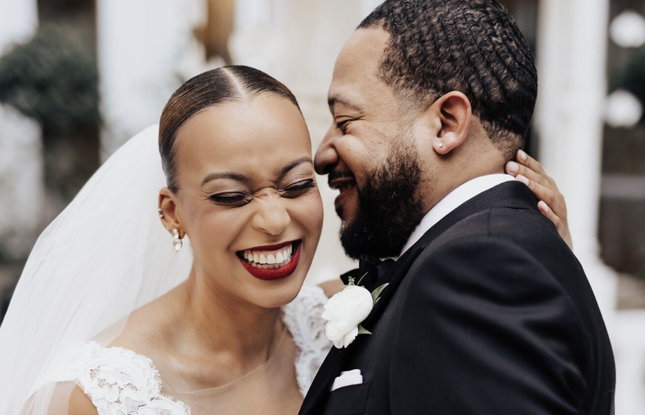What to Expect at a Louisiana Wedding
When it comes to weddings, Louisiana offers incredible venues, delicious food and plenty of #OnlyLouisiana charm.
To make sure you can most effectively laissez les bons temps rouler, let’s review the history and culture behind some of Louisiana’s unique nuptial traditions.
5-Star Dining with Effortless Grace
Buffets or reception-style dinners are more common than sit-down meals in Louisiana. This is a definite plus when you want seconds of shrimp fettuccine. A catering director at one popular venue says about 95 percent of its weddings are reception-style. “I believe Southerners chose buffets because it is more relaxed and creates a party atmosphere,” she explains. And sit wherever you’d like! Typically the only assigned seating is for the bridal party.
More is better – especially for cakes!
Cake pulls and groom’s cakes are dessert-centric customs throughout the South. Cake pulls originated in Victorian England and are most often small charms attached to ribbons tucked under or between layers of the wedding cake. The bride invites bridesmaids and close friends to each pull a ribbon. The shapes of the charms correspond to different fortunes predicting relationships, children, wealth or luck. Groom’s cakes are served alongside the wedding cake and often decorated to reflect the groom’s hobby or favorite sports team. It's also a good excuse to enjoy a Mardi Gras king cake any time of year!

Sazerac Cocktail.

A king cake groom's cake.

The happy couple dances for money.
Traditional Cajun music features two-steps, waltzes and typically a line dance or two. At some point the dance floor might clear for a money dance, a custom rooted in local history. “Guests used to contribute money to the couple’s honeymoon or new household by pinning money on the bride's veil in exchange for a dance with her,” says Barry Jean Ancelet, a professor of French Louisiana folklore at the University of Louisiana in Lafayette. “Pinning money on the groom evolved later,” he added. The tradition sometimes surprises unfamiliar guests, but participating is completely optional. Feel free to grab a third helping of that shrimp fettuccine and people watch. If you do want to cut in, you can even pin a one dollar bill, there’s no minimum or maximum.
There’s a broom, but it’s not for cleaning up.
Prior to the Civil War, enslaved Africans not permitted to marry would jump a broom, recreating a version of African ceremonies. “Jumping the broom is symbolic of sweeping out of the old and sweeping in the new to welcome a new household to the community,” says an operator of one of the state’s many historical plantations. “The bride and groom jump over the broom to denote they have joined together in this venture.” Cajuns in rural areas of the state also took the leap. “Jumping the broom likely derives from Afro-Creole tradition but was indeed celebrated by some Cajun couples in the past,” Ancelet explains, “People for whom a formal wedding was unavailable due to cost or distance from a church used this tradition to represent the beginning of keeping house together.” Today, some couples choose to jump the broom to honor their cultures and previous generations.

Married couple jumping over a broom.

New Orleans wedding second line.
Save your rice—here we send the couple off with jazz!
Second lines are actually traced to the funeral traditions of the Africans and Europeans that influenced Louisiana’s history. “The term second line refers to the band and dancers who follow the first line of the coffin and mourners. Traditionally, they play mournful songs and dirges on the way to the cemetery and then play celebratory songs on the way back to celebrate the deceased’s life and their transition to a better place,” according to David Kunian, music curator at the New Orleans Jazz Museum. “Over time the tradition’s happier aspect has been emphasized and many people adapt it to other celebratory occasions such as birthdays, bar mitzvahs and weddings,” Kunian says. Second lines are most strongly associated with New Orleans, but couples throughout the state are known to hire a brass band to dance them and their guests down the street after the reception to continue the revelry!







